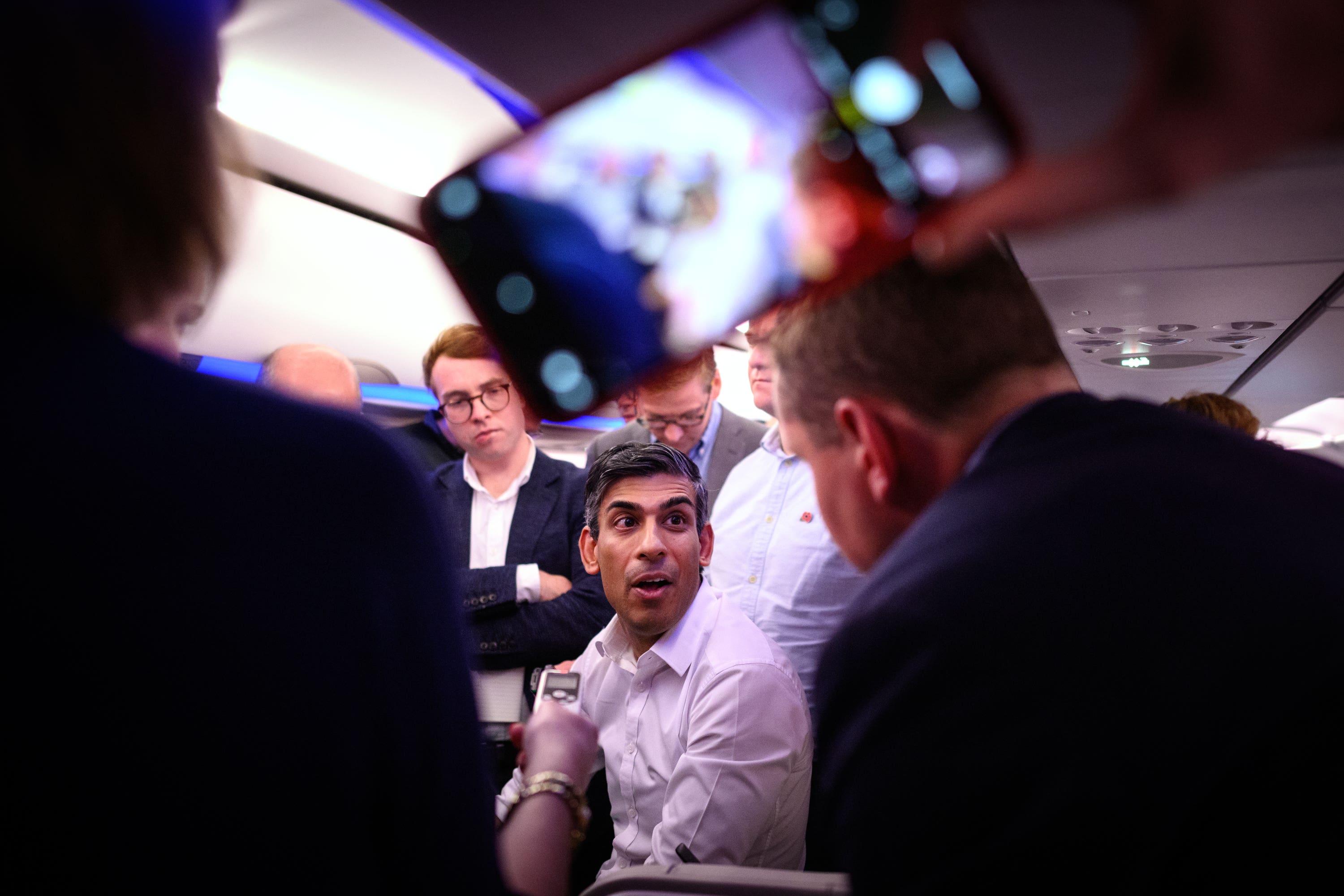Sunak to scale back daily ministerial morning TV and radio appearances
It has been reported the Government will provide a minister to be interviewed around three mornings every week.

Your support helps us to tell the story
From reproductive rights to climate change to Big Tech, The Independent is on the ground when the story is developing. Whether it's investigating the financials of Elon Musk's pro-Trump PAC or producing our latest documentary, 'The A Word', which shines a light on the American women fighting for reproductive rights, we know how important it is to parse out the facts from the messaging.
At such a critical moment in US history, we need reporters on the ground. Your donation allows us to keep sending journalists to speak to both sides of the story.
The Independent is trusted by Americans across the entire political spectrum. And unlike many other quality news outlets, we choose not to lock Americans out of our reporting and analysis with paywalls. We believe quality journalism should be available to everyone, paid for by those who can afford it.
Your support makes all the difference.Rishi Sunak appears set to reduce the number of appearances Government ministers make on the airwaves, with reported plans to end the current practice of frontbenchers being quizzed on TV and radio every morning.
The move was first reported by the Daily Mirror, which said the Government will provide a minister to be interviewed around three mornings every week, with a focus instead on appearing when there is an “announcement”.
The daily broadcast round typically sees a minister appear on BBC Breakfast, Good Morning Britain, BBC Radio 4’s Today programme and other outlets to answer questions and defend the Government each weekday morning.
It is understood that Downing Street will take a “flexible” approach to appearances, with sources rejecting the suggesting the move amounts to an axing of the broadcast round.
Government decisions over whether or not to talk to broadcasters have proven controversial in recent years.
Boris Johnson’s administration was criticised in the wake of the 2019 general election for a boycott of BBC Radio 4’s Today programme.